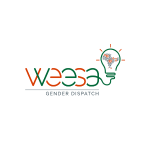Categories
Advancing Women’s Economic Empowerment: Private Sector Lands...
This study explores evidence of private sector investments that increase women’s participation in leadership, operations, and supply chains. Drawing on over 500 sources and 46 interviews with multinat...
The Role of Technology in Reducing the Gender Gap in Product...
Using novel firm-level data from 11 countries, this paper sheds light on technology adoption between women- and men-led businesses and how this affects firm performance. While differences in technolog...
Lifting Financial Performance by Investing in Women (2023)
Companies that invest in untapped talent and embrace different experiences and perspectives outperform country and industry group peers with the least diverse workforces. This paper analyzes women’s r...
Gender Equality in the Workplace – Policy Review and Recomme...
This report spotlights how 38 for-profit companies across Pakistan are creating more equal workplaces for women. Since 2021, the Center of Excellence in Responsible Business (CERB) has partnered with ...
Gender Differences in Job Satisfaction Among Gig Workers in ...
Analyzing survey data from 443 gig workers, this study reveals stark gender divides within the online gig economy in platform use and job categories. Women often choose more flexible digital jobs to j...
The Care Economy: A Case for Expanding the Role of the Priva...
This brief examines India’s existing care infrastructure, the gender gap in unpaid care work, and the role of the private sector. On average, Indian women spend 30% of their day on domestic and caregi...
Water, Sanitation, and Women’s Empowerment: A Systematic Rev...
This systematic review of 257 peer-reviewed articles, examines how empowerment-related terminology, research locations, methods, and key themes are used in the water and sanitation sector. While empow...
Gender Equality and Water Security: A Conceptual Framework a...
Written for practitioners, this report presents a framework for integrating gender into water projects and provides practical tools for design, analysis, monitoring and evaluation. Using case study ex...
Drinking Water and the Implications for Gender Equity and Em...
This comprehensive review of 1,280 peer-reviewed studies examines how drinking water access, quality, and management impact gender equity across five key dimensions: health, psychosocial stress, polit...
Glass Half Empty or Half Full? Gender in Integrated Water Re...
This paper critically reviews gender mainstreaming in South Asia’s water sector, noting its limited impact due to a narrow understanding of gender. Policymakers often equate gender with women – partic...
From Participation to Empowerment: The Case of Women in Comm...
Despite Bangladesh’s 30% quota for women in water management organizations (WMOs), efforts to empower them have yielded mixed results. This study examines women's participation in WMOs, revealing grea...
Men's Household Water Fetching in India: Gender Inequity is ...
Though traditionally seen as women’s work, men serve as primary fetchers of water in over 20% of households in India, based on 2019-2020 Demographic and Health Survey data. This study finds that men’s...

